Psychonauts 2 Review
September 21, 2021 | 10:09
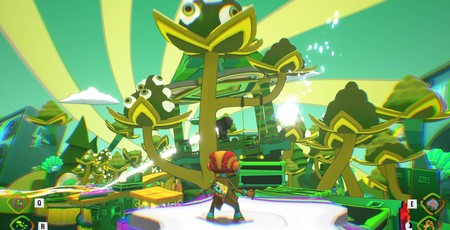
Price: £49.99
Developer: Double Fine
Publisher: Microsoft
Platforms: PC, PS5, Xbox Series X, PS4, Xbox One
Version Reviewed: PC
The original Psychonauts is one of the most charming and imaginative 3D platformers ever made, but it's also a game that rode said charm over some significant problems. For every level like the Milkman Conspiracy, a hilarious and mind-bending journey through a paranoid milkman's brain-space, there was a level like the Meat Circus, a frustrating and poorly paced platforming nightmare that made you want to rip out your own skull and throw it out the window.
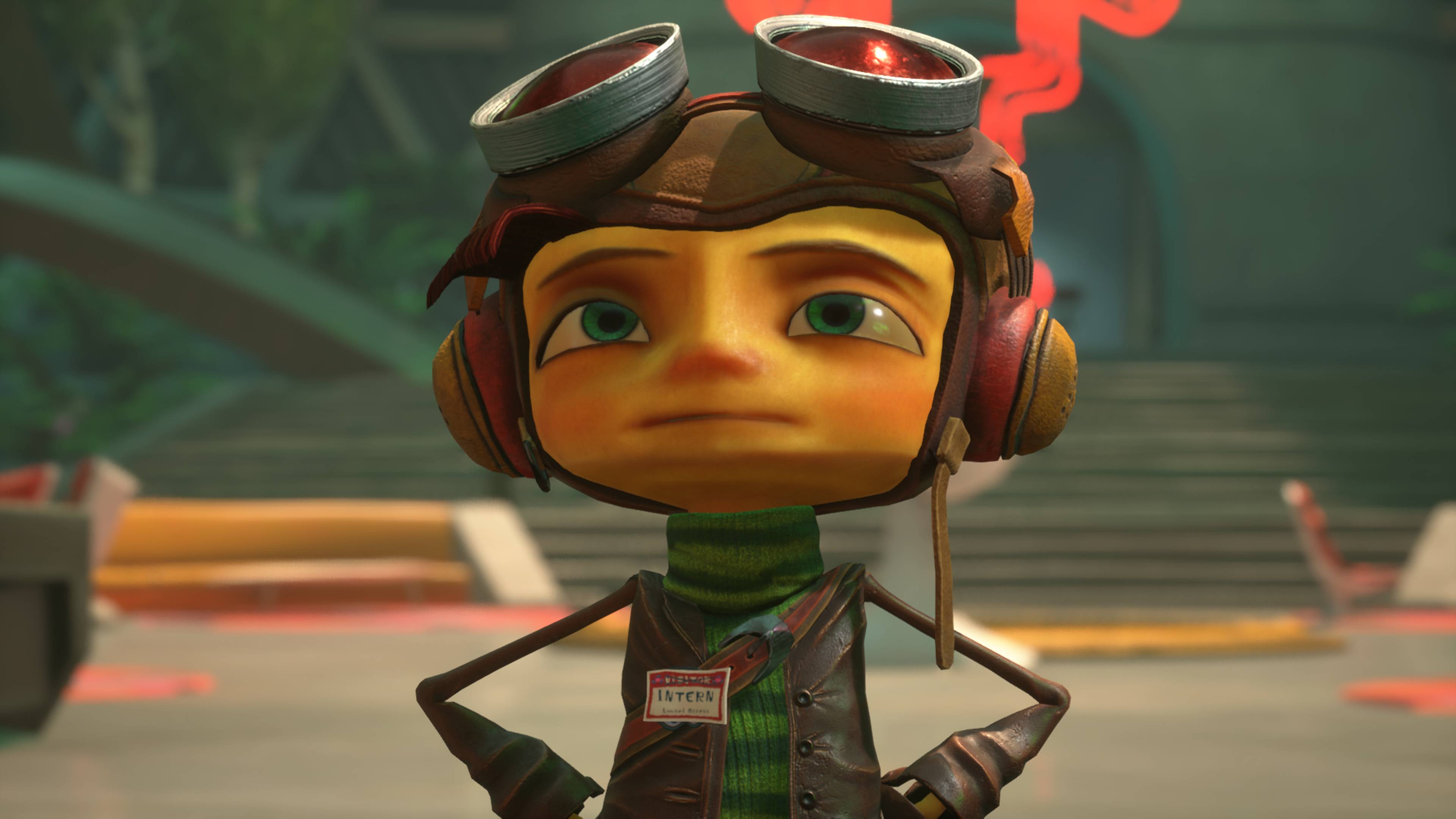
So it's a great relief to say that Psychonauts 2 is all milk and no meat. Double Fine's sequel brings back everything that was great about the original, while fixing everything that wasn't. It's a masterful mashup of old and new ideas, and features some of the best level design I've witnessed all year. It's also far more than a mere sequel to Psychonauts. But we'll get to that.
Psychonauts 2 kicks off exactly where you'd expect, inside the mind of a deranged dentist who kidnapped the leader of the Psychonauts. Here, initiate Psychonaut Razputin takes part in an elaborate mind-heist to discover who hired Doctor Loboto and set him on this scheme to abduct the agency's top brass.
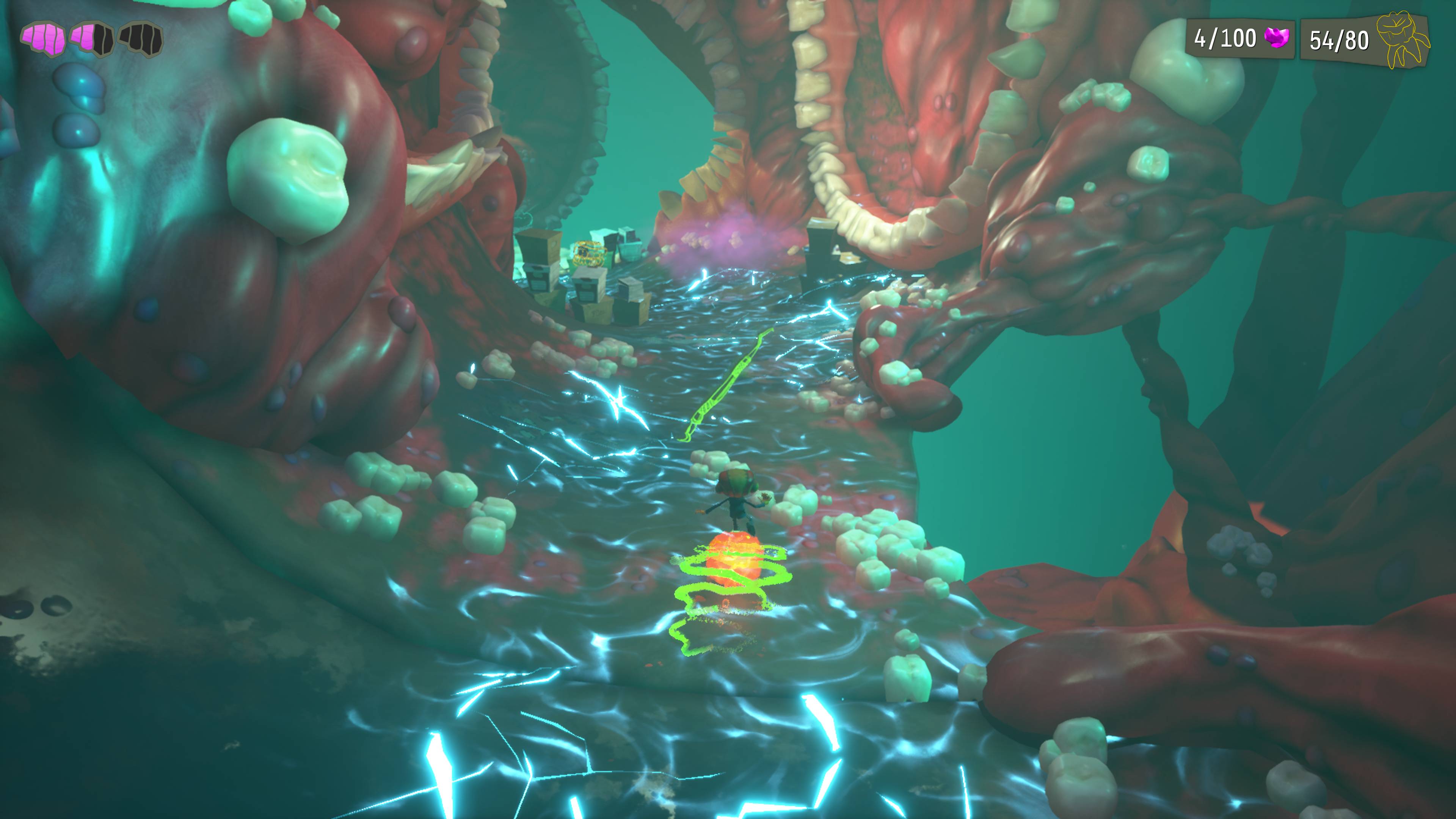
It's a propulsive introduction that encapsulates the sequel's markedly improved pacing, taking minutes to teach you the core mechanics which the original unveiled over hours. It's also as amusing as it is disgusting. As Raz plumbs the depths of Loboto's decidedly dental mindscape, he dashes across carpets of sticky gums, battles literal tooth fairies, and unzips doors made of teeth.
It's a marvellous mental aperitif, but perhaps the most surprising thing about the opening is how similar Psychonauts 2 plays to its predecessor. Nearly all the mechanics from the first game return. The acrobatic platforming, the various psi-abilities such as Raz's wonderful levitation ability where he rolls on a ball of mental energy. Even Psychonauts' many collectibles, the figments and the emotional baggage, are all brought back in the sequel.
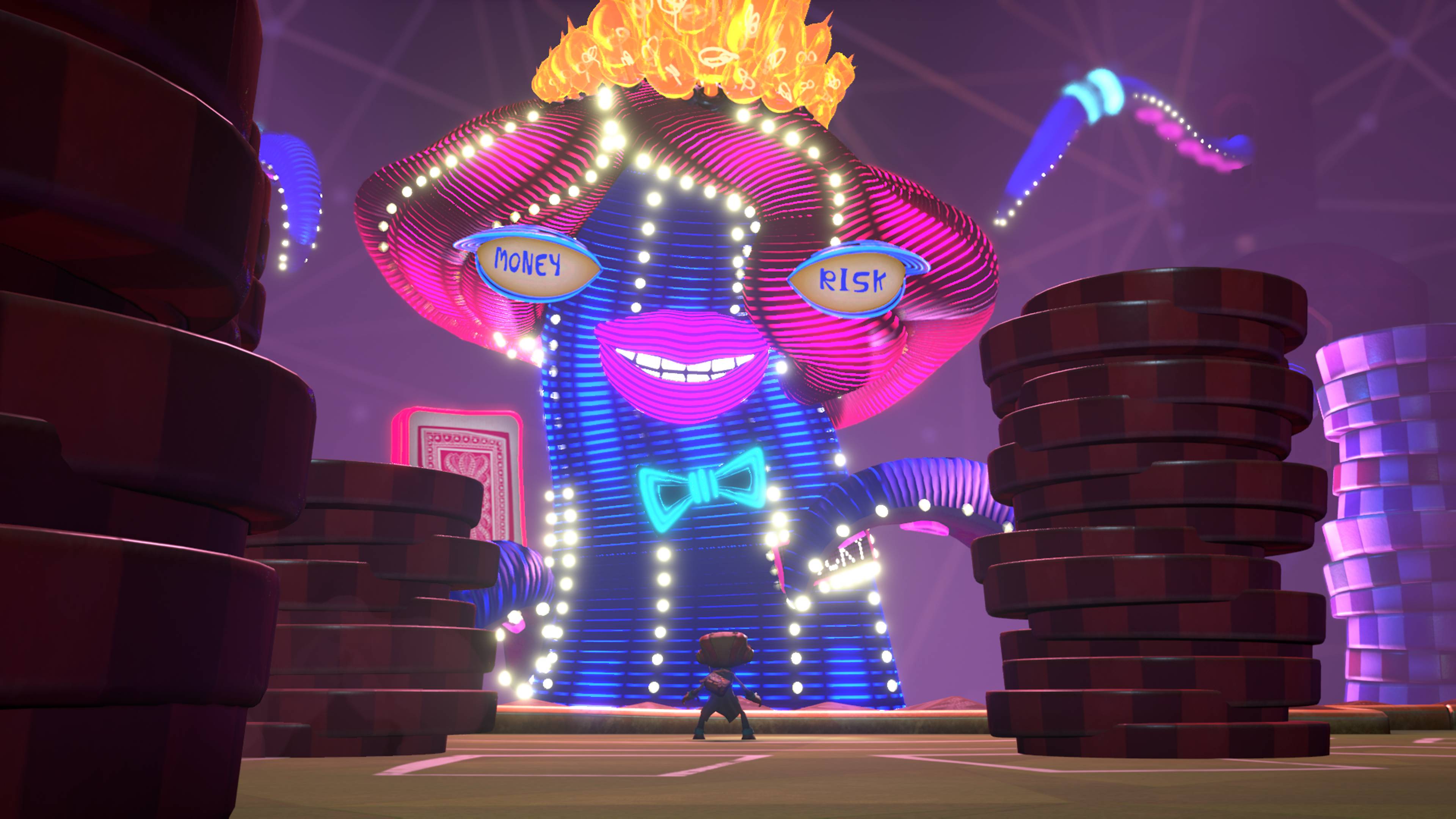
As with the magnificently updated art, however, Psychonauts 2 carefully refines these elements. The platforming is engaging without being frustrating, mostly relying on you picking the right psi-power for the job, using Pyrokinesis to burn through obstacles, and slowing down spinning platforms with Raz's new "time-slowing ability". Combat works in a similar way, with each enemy having a vulnerability to specific powers. Weight-bearing 'Mental regrets' are weak to psi-blasts, for example, while 'Bad Ideas' can have their explosive lightbulbs tossed back at them using Telekinesis. Even if you do get stuck, the game provides a wealth of accessibility options that can not only reduce the game's difficulty, but nullify it completely.
These adjustments are important beyond simply making the game easier to enjoy. Psychonauts 2's levels are the game's main storytelling device, and I don't mean that they have graffiti written on the walls of the various braincases you explore. After the intro, Raz & co return to Psychonauts HQ, the sequel's new and sparkly hub. Here, Raz is tasked with rooting out a mole in the Psychonauts, which he must do by exploring the minds of the agency's original founders.
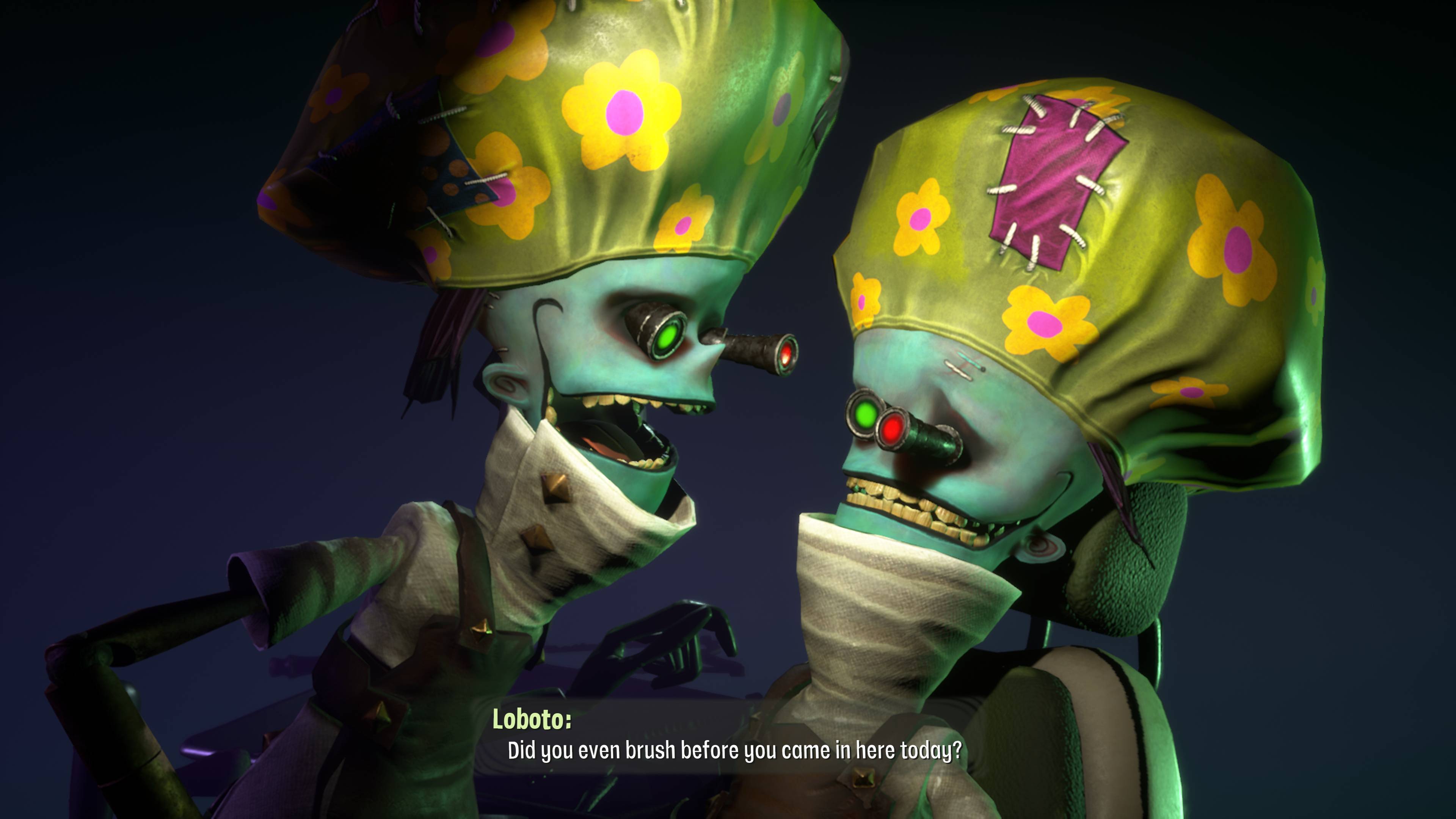
What follows is not a mental spy thriller, but a story of regret, compassion, and healing, all of which is empathetically told through some of the most brilliantly designed levels I've played in ages. Each is a delightful surprise in and of itself, so I don't really want to spoil them. But my favourite sees Raz slowly awaken a 'spare brain' back into consciousness, transforming a dark and empty void into a motley psychedelic panorama, as Raz reunites the brain sensory organs for a rocking comeback concert.
Every level is like this, a precisely choreographed story-space, where visuals cues and snippets of dialogue let you piece together events in your own mind the trials and tribulations that each mind carries with it. Like the first game, Psychonauts 2 mostly avoids referencing specific psychological conditions, but it nonetheless deals in some heavy themes, such as grief and alcoholism.
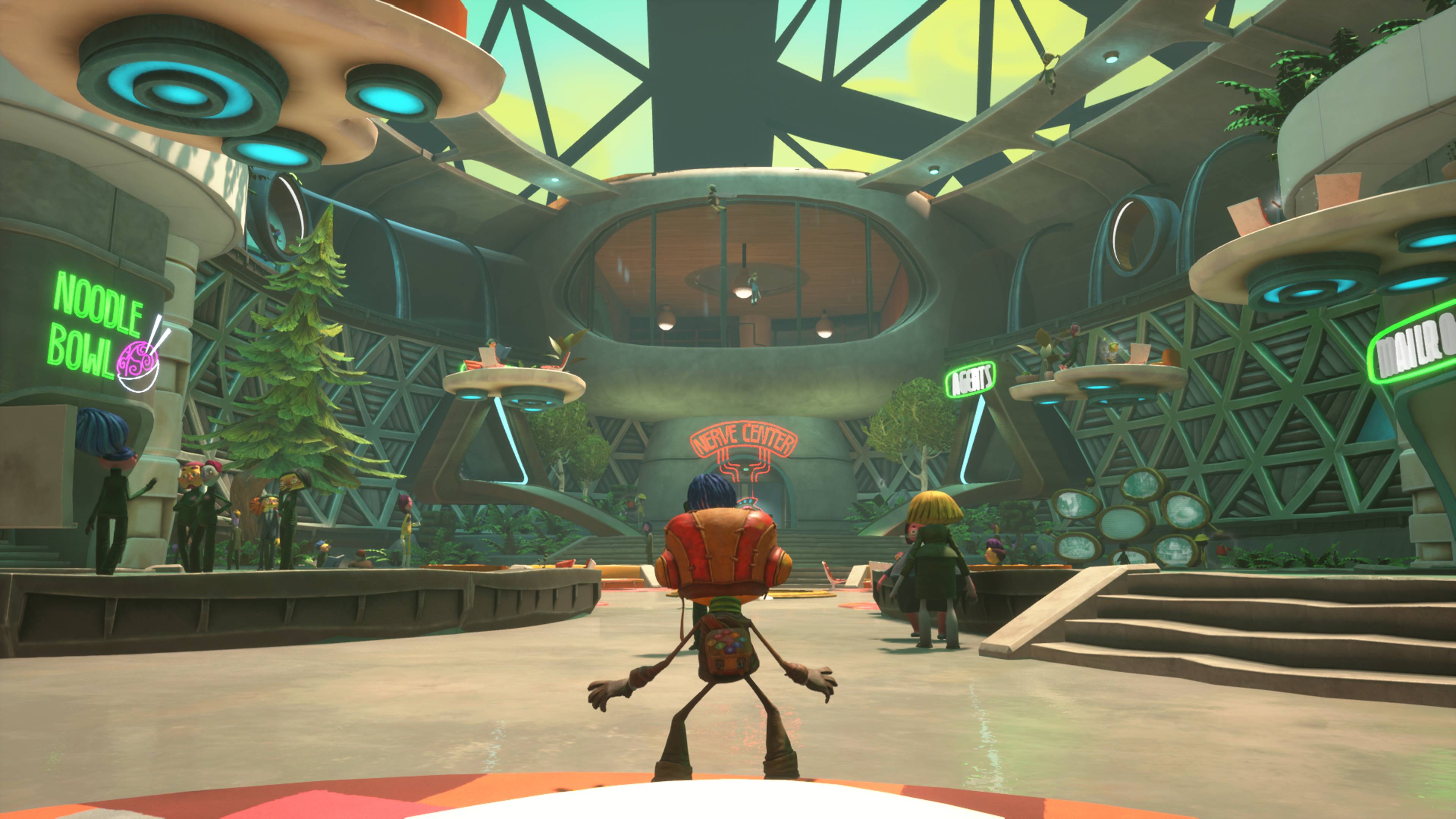
I should point out that Psychonauts 2 is an extremely funny game, filled with zingers and witty exchanges and some brilliantly funny incidental dialogue. There's an extended conversation with another aspiring Psychonaut about pancakes that had me chuckling for about five minutes straight. There are also points where it goes beyond being a sequel to Psychonauts, acting as a pseudo-sequel to Double Fine's entire legacy. Bringing Jack Black back to play another wayward rockstar in what is arguably the game's standout level is a clear tip of the hat to Brutal Legend, while there are similar nods to other Tim Schafer games like Grim Fandango.
But what most impressed me about the game's script was not its humour or clever references, but the compassion it shows for its characters. It's a game that refuses to simplistically view any of its cast as villains, but also doesn't shirk the need for taking responsibility for negative actions. It explores intimately how traumatic events and toxic emotions can lead people to do terrible things, but doesn't shy away from the difficult journey that some mistakes require to rectify. It's a funny game, but it approaches the topic of mental illness and injury with all the gravity and sympathy the subject needs.
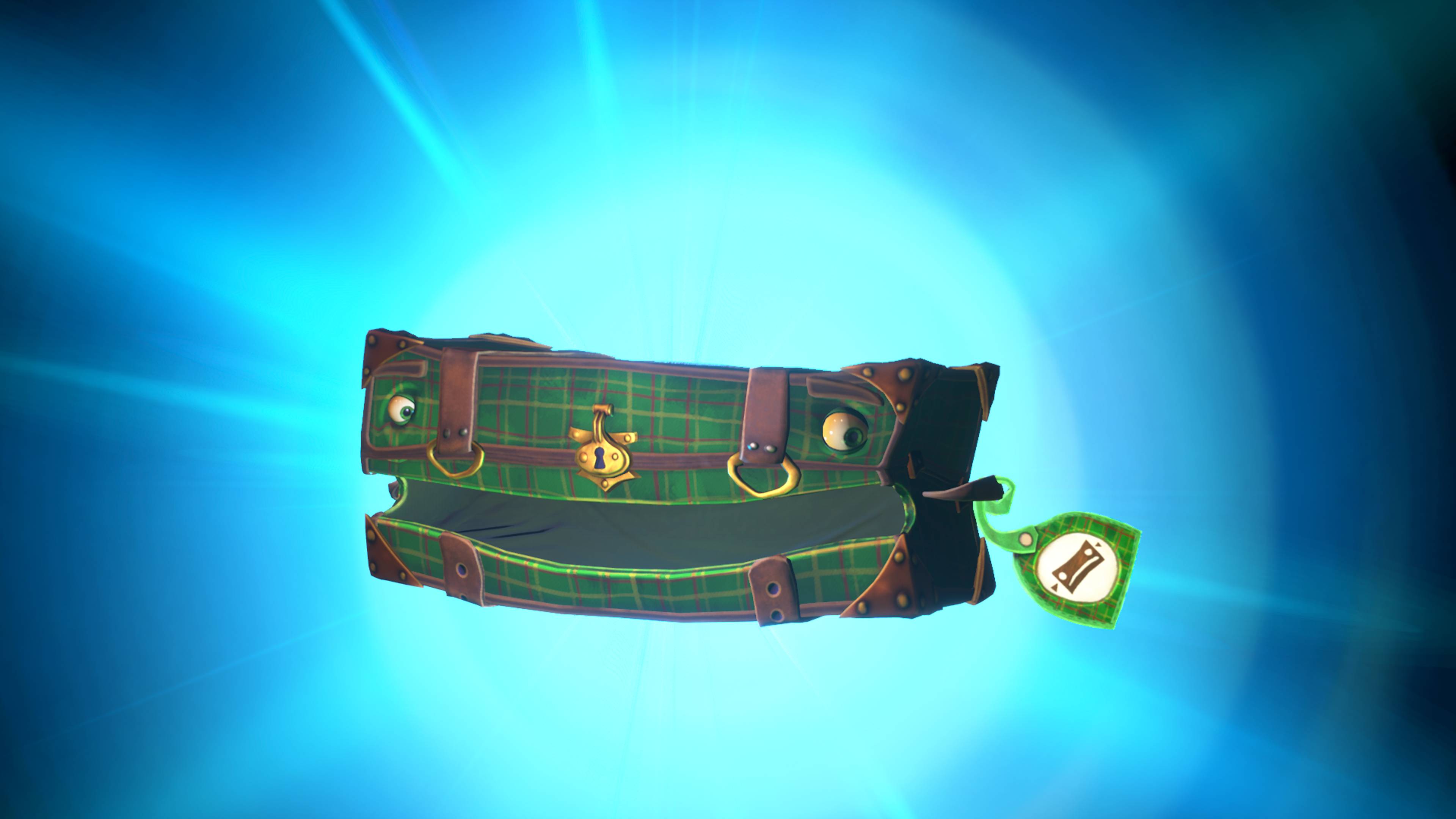
All, told, Psychonauts 2 is comfortably one of the best storytelling games I've ever played, a masterful example of both how to use level design to communicate plot, and how to explore difficult topics through play in a way that's meaningful and fun. That said, Psychonauts 2 has a few troubles of its own. For one, the sequel retains the original's obsession with collectibles. Every area is full of stuff to pick up, psi-cards, figments, psitanium and so on. It all serves a function, being used either as currency or for upgrading your abilities. But the omnipresence of collectibles is nonetheless questionable in a game that has a whole mission dedicated to the problems that can result from compulsive behaviour.
There's also a sense that Psychonauts 2 been dramatically cut down in scope. Some areas of the world that feel like they should have more to them, that they were intended to be part of the main plot, but those missions were removed. Meanwhile, there are roughly a dozen new and reappearing characters who are central to the first few missions, but then almost completely disappear for the remainder of the game, to the point where it feels weird when they're all inserted back into the story for the finale. Of course, editing games is a natural part of the development, and it doesn't affect the quality of what is present. But the seams could perhaps have been massaged a little more neatly.
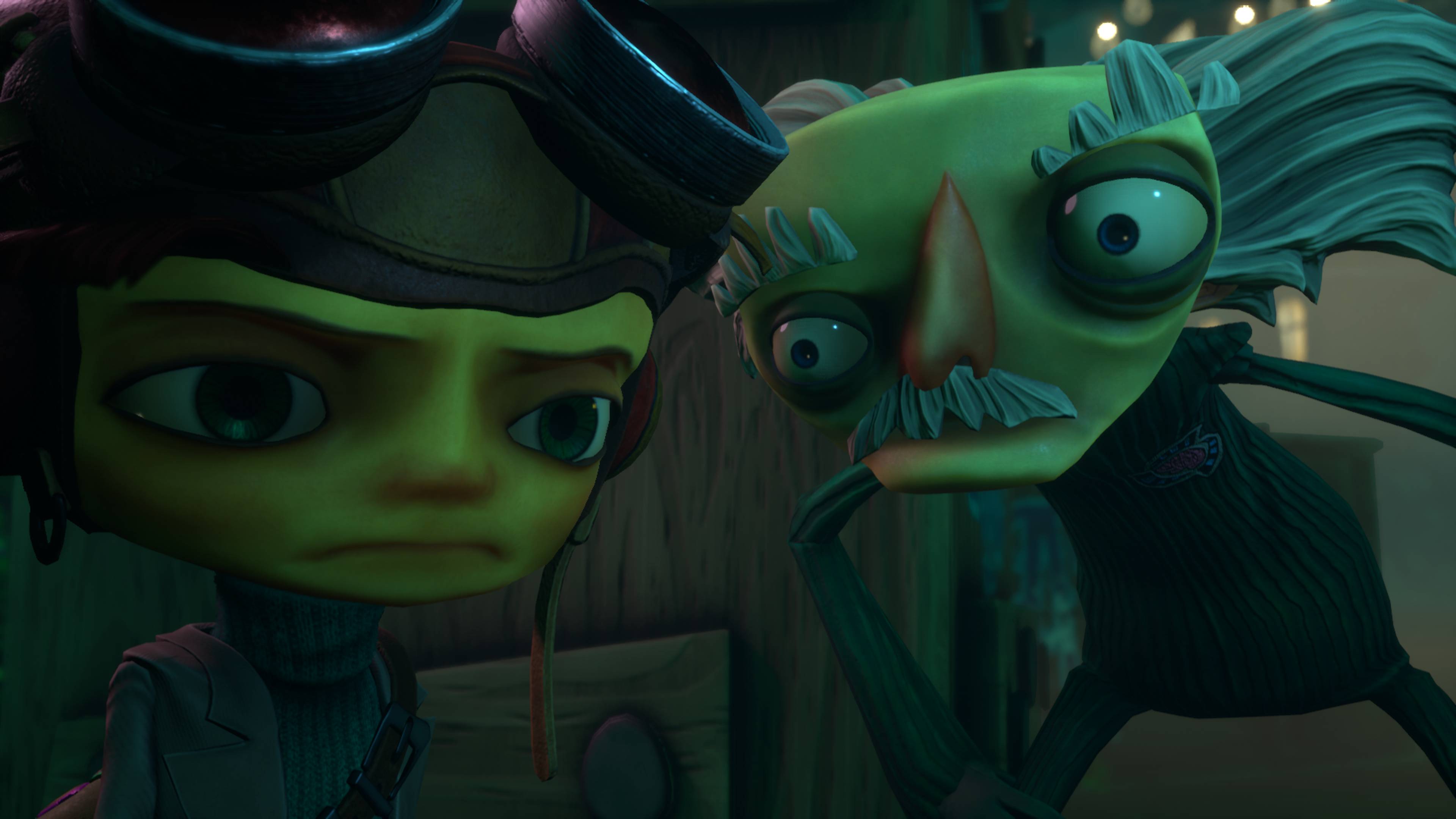
When a critic starts talking about massaging seams, that's usually a sign they've run out of things to criticise (or need to buy bigger clothes). In any case, Psychonauts 2 is a delight. It's a huge improvement over the original, and a better follow-up than we had any right to hope for. But more than that, it's the realisation of everything Double Fine has strived to achieve in the twenty years since it was founded. Not only is it the best game Double Fine has made, it's the best game LucasArts never did.


MSI MPG Velox 100R Chassis Review
October 14 2021 | 15:04






Want to comment? Please log in.